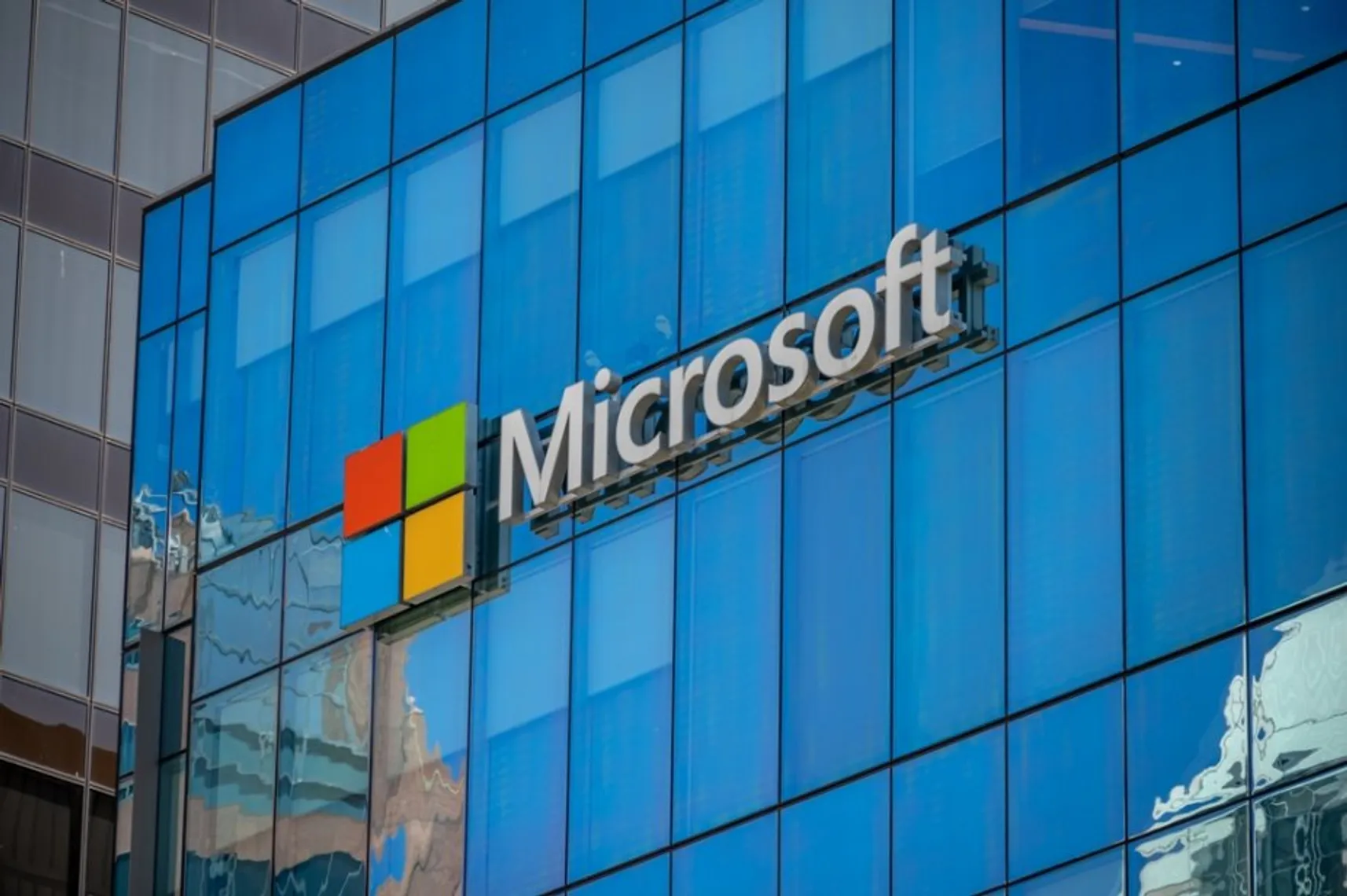Microsoft shareholders 2025: who owns the most MSFT shares
Microsoft is one of the most recognisable names in global technology and a cornerstone of the US stock market. Over the past few decades, it has evolved from a software company into a diversified enterprise spanning cloud computing, productivity solutions and artificial intelligence.
Microsoft Corporation remains one of the world’s most valuable technology companies, with a market capitalisation of around $3.8 trillion (as of November 2025). The firm’s scale, profitability and presence across cloud computing, software and AI continue to shape its global influence. But who holds the largest stakes in Microsoft – and what does this reveal about its ownership structure today?
What is Microsoft?
Microsoft (MSFT) was founded in 1975 by Bill Gates and Paul G. Allen to develop software for personal computers. Its early success with MS-DOS and, later, the Windows operating system transformed access to computing, establishing Microsoft as a global technology leader.
Today, Microsoft operates across three main business segments:
- Productivity and Business Processes: including Microsoft 365, LinkedIn and Dynamics 365, generating $77.8bn in revenue for FY2025.
- Intelligent Cloud: encompassing Azure and server services, contributing $100.4bn in revenue.
- More Personal Computing: covering Windows, Surface and gaming, with $73.8bn in revenue.
For fiscal year 2025, Microsoft reported total revenue of $281.72bn, up 14.9% year on year, and net income of $101.83bn, a 15.5% increase.
Past performance is not a reliable indicator of future results.
Who owns the most Microsoft shares?
As of November 2025, Microsoft’s ownership remains largely institutional, with mutual funds, ETFs, and corporate holdings accounting for the majority of its shares.
| Ownership type | Common stock held | % of shares outstanding | Market value |
|---|---|---|---|
| Mutual funds & ETFs | 3.00bn | 40.41% | $1.52tn |
| Other institutional investors | 2.46bn | 33.13% | $1.25tn |
| Public companies & retail investors | 1.97bn | 26.46% | $995.08bn |
| Total | 7.43bn | 100% | $3.76tn |
This structure reflects a stable institutional base, with mutual funds and ETFs collectively owning more than 40% of Microsoft’s total equity.
Top institutional holders
As of 12 November 2025, the largest institutional shareholders were:
| # | Holder | % of holding | Shares held | Value (USD, in 1,000s) |
|---|---|---|---|---|
| 1 | The Vanguard Group, Inc. | 9.49% | 705,077,786 | 356,769,360 |
| 2 | BlackRock, Inc. | 7.81% | 580,638,325 | 293,802,992 |
| 3 | State Street Global Advisors, Inc. | 4.03% | 299,196,519 | 151,393,439 |
| 4 | Capital Research and Management Co. | 2.97% | 220,825,938 | 111,737,925 |
| 5 | FMR LLC (Fidelity) | 2.45% | 181,732,195 | 91,956,491 |
| 6 | Geode Capital Management, LLC | 2.41% | 179,001,751 | 90,574,886 |
| 7 | T. Rowe Price Group, Inc. | 2.03% | 151,107,853 | 76,460,574 |
| 8 | JP Morgan Asset Management | 1.49% | 111,098,846 | 56,216,016 |
| 9 | Norges Bank Investment Management | 1.37% | 101,513,194 | 51,365,676 |
| 10 | Northern Trust Global Investments | 1.10% | 81,531,742 | 41,255,061 |
Together, these institutions represent more than 34% of total shares outstanding, underscoring the company’s broad and long-term institutional participation.
Top mutual fund holders
Among mutual funds and ETFs, the largest holders as of 12 November 2025 were:
| # | Holder | % of Holding | Shares Held | Value (USD, in 1,000s) |
|---|---|---|---|---|
| 1 | Vanguard Total Stock Market ETF | 3.15% | 233,901,687 | 118,354,254 |
| 2 | Vanguard S&P 500 ETF | 2.46% | 183,172,698 | 92,685,385 |
| 3 | Government Pension Fund Global | 1.35% | 100,276,741 | 50,740,031 |
| 4 | Fidelity 500 Index Fund | 1.27% | 94,372,579 | 47,752,525 |
| 5 | iShares Core S&P 500 ETF | 1.23% | 91,170,897 | 46,132,474 |
Vanguard remains the single largest institutional presence, with multiple funds collectively holding more than 6% of Microsoft’s total equity.
Insider shareholdings
Among company insiders, share ownership remains concentrated within Microsoft’s senior leadership and Board of Directors, including:
- Bill Gates – Co-founder and former Chair
- Satya Nadella – Chairman and CEO
- Brad Smith – Vice Chair and President
- Amy Hood – Executive Vice President and CFO
Bill Gates remains Microsoft’s largest individual shareholder, though his stake has gradually reduced over time through philanthropic divestments.
Source: Investing.com, 12 November 2025.
Past performance is not a reliable indicator of future results.
Create an account Open a demo account
FAQ
Who owns Microsoft?
Microsoft’s largest shareholders are institutional investors, including major asset management firms such as The Vanguard Group, BlackRock, State Street, FMR LLC, and T. Rowe Price. Bill Gates remains the largest individual shareholder.
What is Microsoft’s market capitalisation?
As of November 2025, Microsoft’s market capitalisation stands at around $3.8 trillion, making it one of the largest publicly traded companies globally. Market capitalisation values may fluctuate over time depending on changes in share price and market conditions.
Does Microsoft pay dividends?
Yes. Microsoft pays quarterly dividends to its shareholders. In 2025, the company increased its dividend to $0.91 per share, continuing its record of consistent returns to investors. Dividend payments are not guaranteed and may vary depending on corporate performance and board decisions.
Can investors trade Microsoft shares through CFDs?
Yes. Traders can speculate on Microsoft’s share price movements using contracts for difference (CFDs) without owning the underlying stock. CFDs allow both long and short positions, but they also involve margin. Leverage amplifies both profits and losses. Trading CFDs is not suitable for all investors and should only be done after understanding the associated risks.